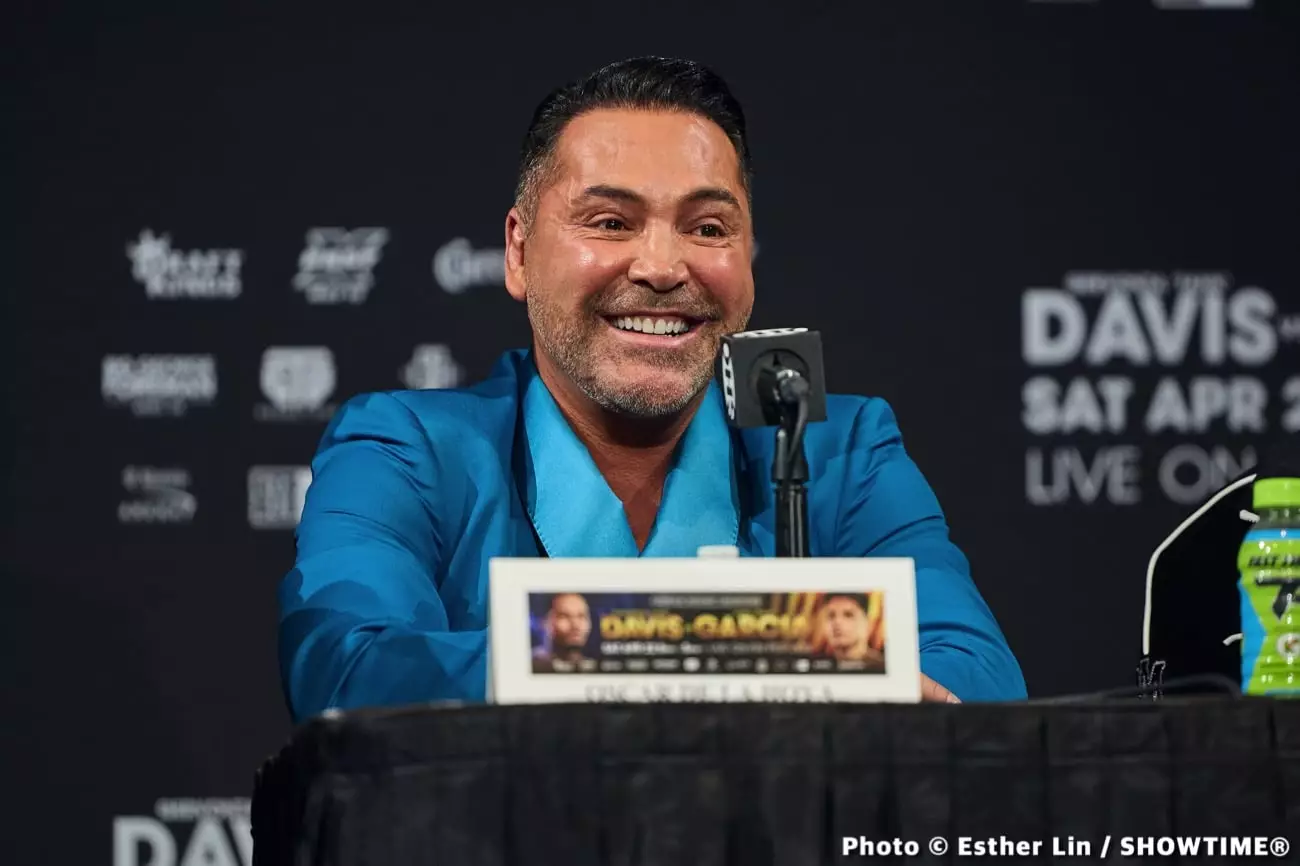In the world of boxing, rivalries often extend beyond the ring, spilling over into the realm of social media. This became abundantly clear during a recent Twitter exchange featuring Oscar De La Hoya, the founder of Golden Boy Promotions, and Eddie Hearn, the head of Matchroom Boxing. The latest “Clapback Thursday” saw De La Hoya and rising star Ryan Garcia take center stage, publicly scrutinizing Hearn’s promotional efforts. Such banter isn’t merely humorous; it reveals significant tensions in the boxing industry, highlighting the consequences of promotional mismanagement.
De La Hoya’s commentary pointedly focused on the performance of Hearn’s fighters in 2023, spotlighting a staggering statistic: fourteen of Matchroom’s key fighters have met defeat or sustained injuries. In his digital roast, De La Hoya faulted Hearn for not only his handling of these fighters but also for his perceived incompetence. He made specific references to notable athletes—Sandy Ryan and Anthony Joshua—positioning their recent losses as evidence of Hearn’s promotional failures. By leveraging statistics as a contentious weapon, De La Hoya underscored the stakes associated with successful athlete management in boxing, where public perception and marketability are crucial.
Central to De La Hoya’s critique was Canelo Alvarez, a fighter whose relationship with both promotions has been tumultuous. De La Hoya asserted that he was the architect behind Alvarez’s rise in the United States, contrasting it with Hearn’s brief involvement. Canelo’s tenure under Hearn, characterized by a handful of fights, is framed as a sign of inadequate management. The implications are clear: a promoter’s role is pivotal, not only in ensuring fighters’ success inside the ring but also in maintaining their brand strength outside it. This narrative serves to amplify the competitive nature of the boxing industry, where one poor promotional decision can drastically affect a fighter’s career trajectory.
Emotions ran high during the exchanges. Ryan Garcia’s direct gesture toward Hearn—flipping off the camera—symbolizes not just personal animosity but also a broader dissatisfaction with how fighters are represented by their promoters. Garcia’s feud with Hearn predates this incident, rooted in derogatory comments made during the lead-up to his fight with Devin Haney. These personal conflicts illuminate how a promoter’s influence can permeate the psyche of a fighter, affecting both their performance and public demeanor.
The Takeaway: Loyalty and Accountability in Boxing
The back-and-forth between De La Hoya and Hearn reveals a deeper conversation about loyalty and accountability within the sport. Promoters hold immense power in shaping a fighter’s career, and when that relationship falters, ramifications can be severe. Each comment, each statistic, serves as a reminder of the stakes involved, not just for the athletes but also for the promotions that champion them. As the boxing world continues to evolve, the dynamics between fighters, their promoters, and the media will remain a hotbed for discussion and, perhaps, a catalyst for change within the industry.

